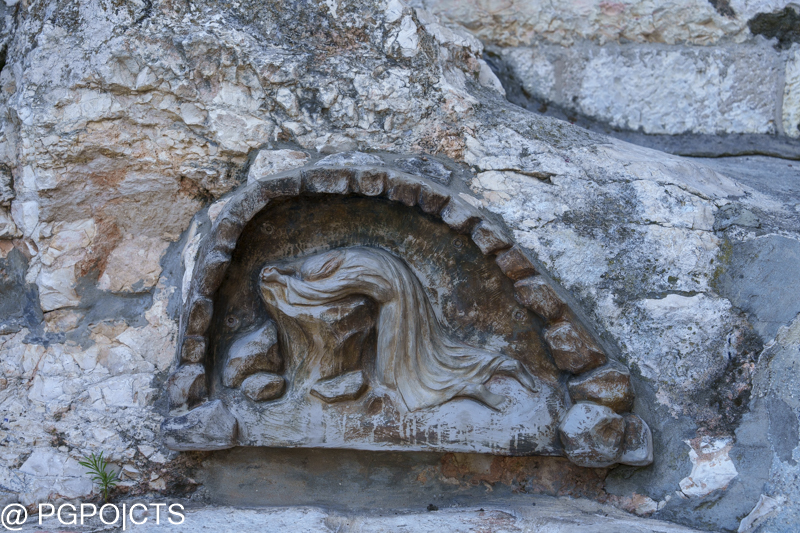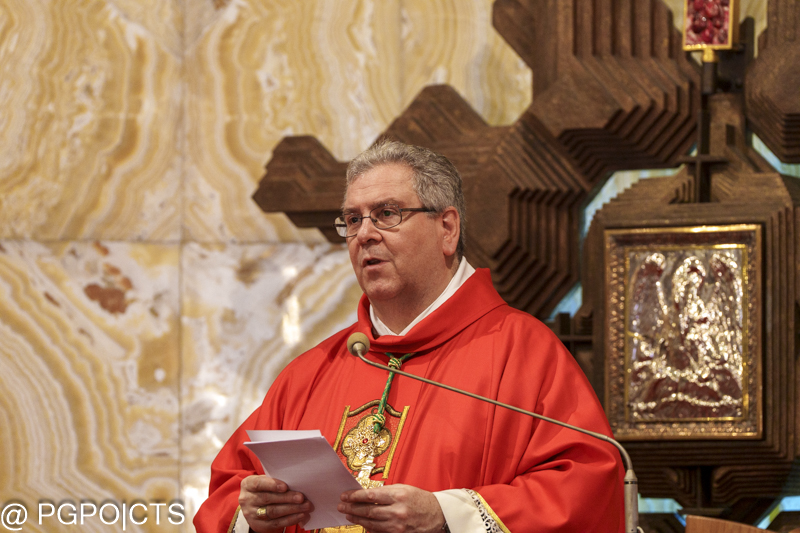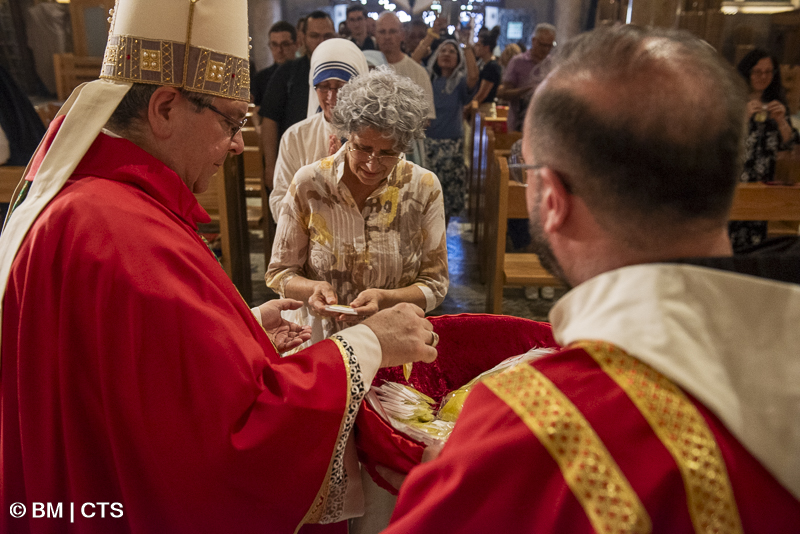Red rose petals, like drops of blood, are scattered over the rock of Gethsemane, on which Christ sweated blood (Luke 22, 39-44) to the singing of “Vexilla Regis”, the ancient hymn in honour of the Holy Cross on which Christ gave his life for the salvation of humanity. This is the initial act of the Mass that the friars of the Custody of the Holy Land celebrated at Gethsemane for the solemnity of the Most Precious Blood of Our Lord Jesus Christ.
The Mass was presided over by the Custos of the Holy Land, fra Francesco Patton and concelebrated by the Vicar, fra Ibrahim Faltas, the General Visitor fra Alojzy Warot, the Emeritus Bishop of Chascomús (Argentina) Mons. Carlos Malfa and by fra Silvio de la Fuente, discreet of the Holy Land, as well as about twenty priests.

The antique devotion of the Blood of Jesus - which various traditions adopted – found its liturgical expression thanks to Pius IX who in 1849 fixed the date of 1 July as the feast of the Most Precious Blood. St Paul VI, after the liturgical reform of 1969, combined this feast-day with that of Corpus Christi. Jerusalem is the only place where it is still celebrated and this is linked to the fact that the Basilica of the Agony, at the foot of the Mount of Olives, preserves the physical memory of the blood that Jesus sweated, on the night he was captured.

In his homily, the Custody emphasized the value of the Blood of Christ as the seal of the “new and eternal alliance” of God with his people. “We do not come covered in the blood of dead animals (Hebrews 10, 4), but we receive the blood (i.e. the life) of Christ.” Fra Patton also highlighted the salvific power of Christ’s blood, which heals us from sins: “Christ’s blood is his life given out of love and with infinite love, and this is why it can heal our own lives when we receive it.”

As well as preserving the memory of Christ’s blood, Gethsemane is also the place of oil. The name Gethsemane itself means “oil press.” The grotto known as “the apostles’ grotto”, where Jesus would retreat to, was an oil press. The Franciscans in the Holy Land continue to keep this tradition alive: at the end of the Mass, the Custos blessed some small sachets containing cotton wool soaked in oil from Gethsemane, which were given out to those present.
Marinella Bandini
